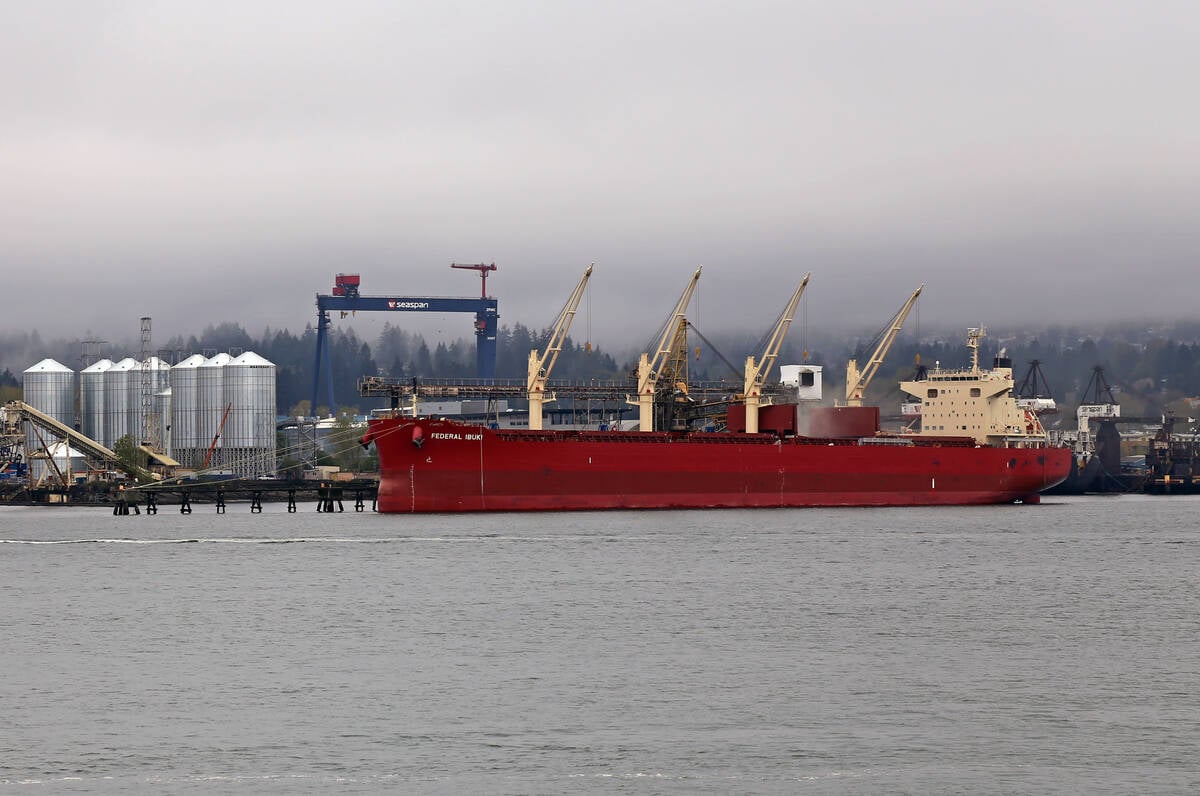It’s almost use-it-or-lose-it time for the Winnipeg feed barley futures contract.
The ICE Futures Canada exchange says it’s committed to keeping the contract, and many farmers, feeders and grain companies say they want the contract to continue.
However, a contract lives and breathes in the air of trading, and there are many days when this contract does not trade.
That is a problem, considering that the main reasons for open, public marketplaces such as futures exchanges are to offer a visible price and provide a mechanism by which buyers and sellers can transfer risk.
Read Also

Vancouver port says it has improved efficiency
Grain movement has been strong at the Port of Vancouver due in part to a new centralized scheduling system.
Having no trades effectively eliminates that marketplace. Not only do barley prices drift out of sight, but there’s no public benchmark for prairie feed grain prices.
If farmers want to have a public marketplace for barley, they’d better start using the contract rather than wait for bigger players to pump it back to life.
Big players usually like futures markets, but they don’t need them and the bigger the player, the less it needs external devices to manage risks.
With the prairie grain economy now dominated by a small number of giant organizations – less than half a dozen significant grain companies, a few large feedlot companies and the Canadian Wheat Board – there are far fewer big users of these contracts than there were a decade ago.
Farmers tend to be passive users of these sorts of hedging devices, comfortable with the major commercial users dominating the system.
However, that stance would be a mistake here.
The western barley contract would quickly be back in business if the commercial users returned, but they don’t need to return.
One of the myths of the marketplace is that the free market benefits big, rich, vested interests. In truth, the big commercial players in any industry prefer to see free marketplaces disappear, throwing a veil over prices so they can force small players to come to them and accept the prices they offer.
Every company would like to have a monopoly. Monopolies aren’t legally allowed in non-government entities, but some industries become dominated by just a few players, called oligopolies, which have almost the same ability to fix prices or conditions in their favour.
Oligopolistic corporatism is more akin to socialism than capitalism, minus socialism’s putative commitment to the public good. Take a look at Russia, which has experienced both systems.
Free markets benefit the small and weak because they offer a public, non-discriminatory venue in which to buy and sell and in which true prices are revealed.
No matter how big prairie farms become, they will always be small and weak compared to the oligopolies of the grain and feeding trade. As a result, free market mechanisms such as futures contracts are of vital interest to farmers.
So if farmers want to stop the prairie feed grain market from drifting into the opaque world of just-trust-us companies and brokers, they’d better start using the contract.
Brokers tell me the contract is well-designed and there’s no reason, other than liquidity, that farmers shouldn’t use it.
Liquidity is a chicken-or-the-egg thing. If farmers start using it, for even small positions, liquidity comes back and the marketplace revives. But someone’s got to start it.
So if you’re a farmer with lots of barley that you plan to sell in coming months, why not try to lock up prices with the western barley contract? Try a bit. See if the mechanism works.
If you’ve got the physical barley in store, you don’t have much more than execution risk to worry about.
That’s also true if you’re a small feeder or backgrounder who plans to buy barley or feed wheat this year. If you’re a real grain seller or user, the dangers are limited.
But truly, if you want a free market in feed grains offering public prices, you’d better make it happen. Because in the end, you are the marketplace and you shouldn’t be expecting anyone else to step in and save it.

















